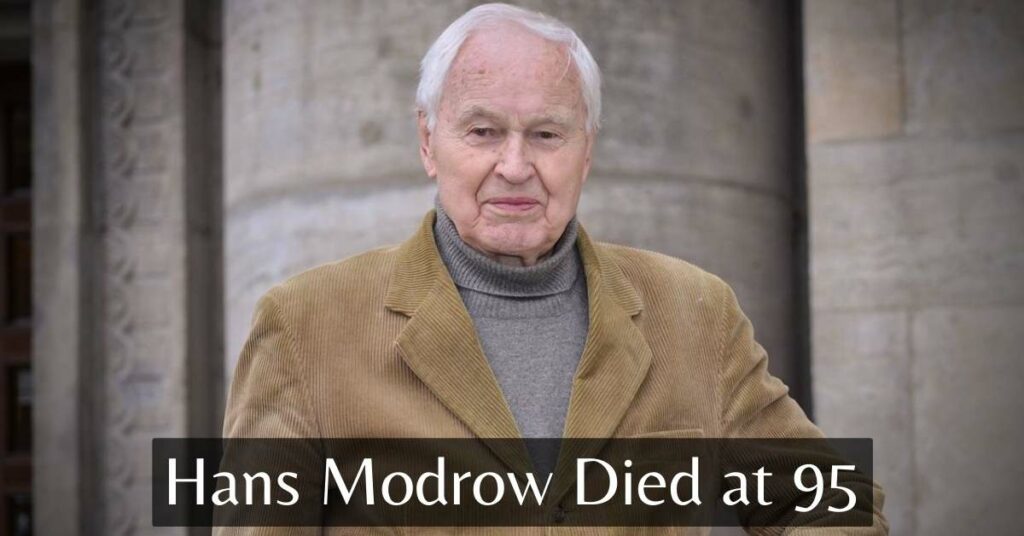Hans Modrow, the last communist leader of East Germany, died. He led the country during a rough time that ended with the country’s first and only free election. He was 95.
The Left party parliamentary group wrote on Twitter that Modrow died early Saturday morning. Modrow, a reform-minded communist, took over East Germany soon after the Berlin Wall fell.
He later invited opposition groups to join the government, but he couldn’t stop the growing momentum for German reunification.
The Left wrote on Twitter –
“The entire peaceful course of establishing German unity was precisely a special achievement of his.”
“That will remain his political legacy.”
Starting in 1973, Modrow was the head of the communist party in Dresden for 16 years. During that time, he became known as an anti-establishment figure. He turned down free stuff from the party and insisted on living in a regular apartment.
He didn’t get a job in East Germany’s top leadership until he was made prime minister in November 1989, just days after the Berlin Wall fell. Before that, the position of prime minister didn’t have much power.
This year has seen the passing of several notable individuals, and we’ve got you covered:
- Janet Anderson Former MP for Rossendale and Darwen Has Died at Age 73.
- Aidan Higgins Cause of Death: Acclaimed Irish Author Died at Age 88.
When hard-line leader Egon Krenz and his ruling Politburo left their jobs at the beginning of December, Modrow became the most important politician in East Germany.
But the communists could not make decisions on their own anymore. The next month, he agreed to share power with the opposition, which was getting louder and moved the first free elections in East Germany up to March 1990.
Even though pro-democracy rallies quickly took on a pro-unification tone, the communists didn’t like the idea at first. But in February 1990, Modrow pushed for talks with West Germany to create a “united fatherland” that would be independent of military blocs and run by a joint parliament in Berlin.
The renamed communists, the Party of Democratic Socialism, were led by Modrow during the election campaign, but even though he was very popular, it wasn’t enough to keep them from coming in third with only 16 percent of the vote.
The winner was an alliance of conservative parties that wanted reunification quickly and had the support of Helmut Kohl’s government in West Germany. Germany came back together under Kohl’s leadership and as a member of NATO on Oct. 3, 1990, less than a year after the Berlin Wall fell.
Modrow was a member of the united parliament until 1994. He was also the honorary chairman of the post-communist PDS, which was the forerunner of the opposition Left party of today. He was a member of the European Parliament from 1999 to 2004.
A few years after reunification, Modrow went to court because of what he did when strict communists ran the country.
In 1995, a court found him guilty of getting others to change the results of local elections in Dresden in May 1989. It gave him a fine and put a nine-month sentence on hold.
Modrow said that the trial was based on politics and that the outcome would make it harder for east and west Germans to get along.
His lawyer said that he had made up for past wrongs by making sure that free elections were held as prime minister. Later in life, Modrow was a member of the Left party’s council of elders.
Dietmar Bartsch, the chairman of the Left party parliamentary group tweeted –
“Hans was a deeply sincere and combative socialist.”
“Until old age he was an important adviser in our party, whose wisdom will be missed.”

